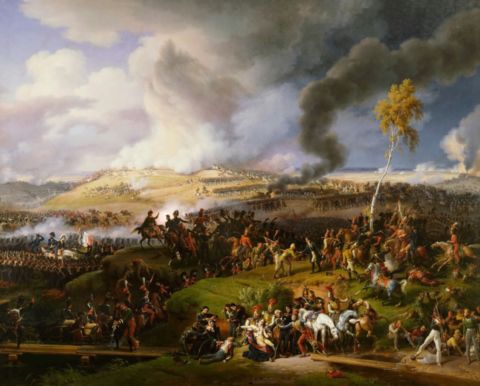Today is an anniversary of the Battle of Borodino, one of the well-known and bloodshed battles during the Patriotic War of 1812. The Russian army lead by General Mikhail Kutuzov entered the decisive battle with the French in the vicinity of Borodino village near Moscow 212 years ago.
Historians characterize the Battle of Borodino as a paradox due to the fact that both Russia and France consider themselves winners in this battle. Both countries suffered huge losses but, nevertheless, General Mikhail Kutuzov could not stop the attack on Moscow, while Napoleon could not defeat the Russian army either.
“The Battle of Borodino is a case of unpredictable consequences as a result of historical events, and teaches us that people in the centre of action are not capable of understanding or evaluating such consequences. After the Battle of Borodino happened, the French felt like the absolute winners. While the Russian army leaders were not sure whether they sustained the battle well enough. However, with time, it turned out that having won in one battle, you can lose something major, like the whole campaign, reputation, and power,” explains Rosalia Cherepanova, Candidate of Sciences (History), Associate Professor of the SUSU Department of Russian and International History.
The French intended the Battle of Borodino to become a decisive general battle, but it became the most bloodshed one in the whole military history of that time. At a rough estimate, the Russian army lost in this battle up to 50 thousand people, and the French – more than 35 thousand people, that is approximately one third of the army numbers on both sides. At the same time, while the French army included satellite military forces (even Austria and Prussia, who had used to be associates of Russia, provided their troops for the French), the Russian army fought without allies in this battle, and there was also a threat of an outbreak of war from the Ottoman Empire and Persia along the southern borders.
Cossack military units from the Don region, Orenburg and the Ural region made a huge contribution to the victory in the Patriotic War of 1812. Toponyms in the Chelyabinsk Region have preserved the traces of that military campaign: Berlin, Fershampenuaz, Varna, Parizh (which in Russian sounds like the French Paris).
“In the map of the Chelyabinsk Region there are no clear indicators to the Battle of Borodino, and this can mainly be explained by the fact that the battle results were ambiguous: we had to retreat. But we must remember that this retreat eventually turned into victory, though one could hardly imagine that way right after the Battle of Borodino. In this regard, this battle is wonderfully in tune with the national Russian myth, which has variants of fables about an average family, where the youngest son is initially not that strong or talented, but thanks to his brave heart, kindness, patience, and ingenuity becomes the most successful one in the end,” notes Rosalia Cherepanova.
The Battle of Borodino did not only become a turning point in the war of 1812, but it also triggered a grand-scale transformation in the national consciousness of the Russians. Gigantic losses, retreats and ravaging of Moscow that followed, roused and united all the classes and masses of the Russian society. The battle results felt like a great disaster, but the fending off of Napoleon – like an unprecedented triumph.




